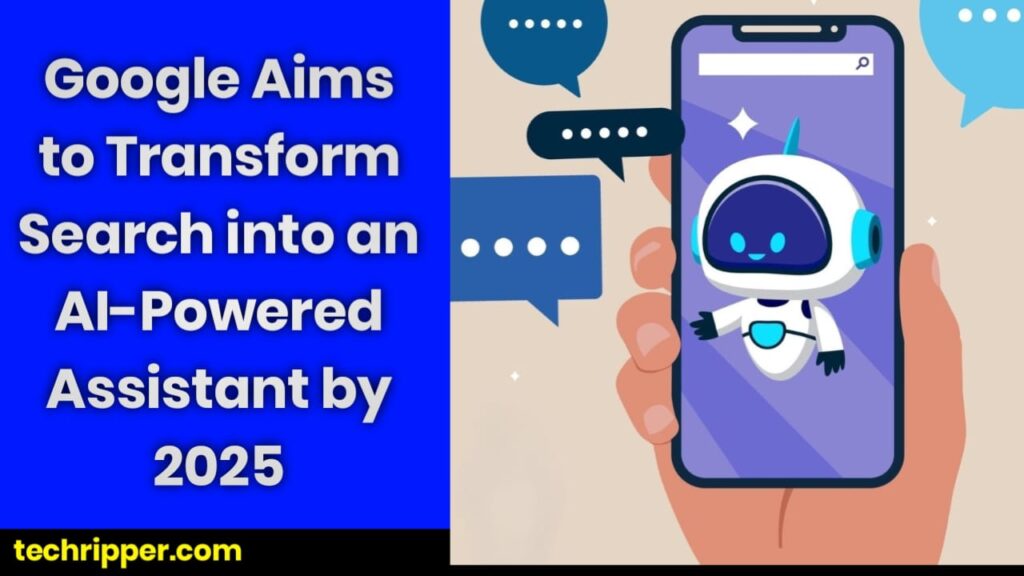Google Search is undergoing a profound transformation, evolving from a traditional search engine into a more dynamic AI-powered assistant. During Google’s earnings call on Tuesday, CEO Sundar Pichai described this shift as part of an ongoing “journey” centered around artificial intelligence. The journey began with the introduction of AI overviews, a controversial yet groundbreaking change in how Google delivers information to its billions of users.
But that was just the tip of the iceberg.
“As AI continues to expand the universe of queries people can ask, 2025 is going to be one of the biggest years for search innovation yet,” Pichai said during his opening remarks.
Throughout the call, Pichai outlined Google’s ambitious roadmap for integrating advanced AI features into Search, leveraging technologies developed by DeepMind, the company’s cutting-edge research lab. The goal? To create a system that acts less like a search engine and more like an AI assistant—browsing the web, analyzing content, and delivering precise answers tailored to users’ needs.
This marks a significant departure from the classic model of providing ten blue links and leaving users to sift through results themselves.
The Catalyst for Change

Google’s pivot toward AI-driven search began in earnest after the release of OpenAI’s ChatGPT in 2022, which caught the tech giant off guard. Since then, Google has been racing to reimagine Search to keep pace with the rapidly evolving landscape of generative AI. These changes have far-reaching implications—not only for websites that depend on Google traffic but also for advertisers who rely on paid placements within search results.
While not everyone is thrilled about these developments, Google is forging ahead, undeterred by initial setbacks.
Project Astra and Beyond
When asked about the future of AI and Search, Pichai hinted at exciting possibilities with Project Astra , DeepMind’s multimodal AI system capable of processing live video feeds or computer screens to answer real-time user queries. While initially designed for broader applications, including powering augmented reality smart glasses, Project Astra could play a pivotal role in enhancing Google Search’s capabilities.
Pichai also highlighted Gemini Deep Research , an AI agent designed to generate detailed, long-form research reports. This tool automates tasks traditionally performed manually using Google Search, signaling a potential shift in how users interact with the platform.
“You are dramatically expanding the types of use cases for which Search can work—things that don’t always get answered instantaneously but may take some time to resolve,” Pichai explained. “These are all areas of exploration, and you’ll see us rolling out new experiences throughout 2025.”
Another project mentioned was Project Mariner , an AI system capable of navigating websites on behalf of users. By interacting directly with front-end interfaces, Mariner eliminates the need for individuals to browse sites themselves—a move that could redefine user engagement with online content.
Toward a More Interactive Search Experience

Pichai emphasized the importance of making Google Search more interactive, allowing users to engage in follow-up conversations and refine their queries naturally. Though details remain sparse, it seems Google envisions a chatbot-like interface where users can ask clarifying questions and receive iterative responses.
“I think the [Search] product will evolve even further,” Pichai said. “As we make it easier for people to interact and ask follow-up questions, there’s an opportunity to drive meaningful growth.”
Competing in an AI-Driven World
Today, ChatGPT stands as one of the internet’s most widely used products, boasting hundreds of millions of weekly active users. Its success poses an existential challenge to Google Search’s dominance. In response, Google isn’t merely building a rival chatbot through its Gemini series—it’s embedding AI functionalities directly into Search itself.
However, Google’s first major step—the rollout of AI overviews—was met with criticism due to instances of inaccurate or bizarre outputs (such as advising users to eat rocks or add glue to pizza). Despite these hiccups, Google remains committed to refining its AI-driven approach.
What Lies Ahead
As Google doubles down on its vision for a smarter, more intuitive Search experience, 2025 promises to be a transformative year. With projects like Astra, Deep Research, and Mariner on the horizon, the line between search engines and AI assistants will continue to blur.
For better or worse, the era of AI-powered search is here—and Google intends to lead the charge.
ALSO READ:Accel Invests in Indian AI Startup Revolutionizing Presentations with AI – Techripper

